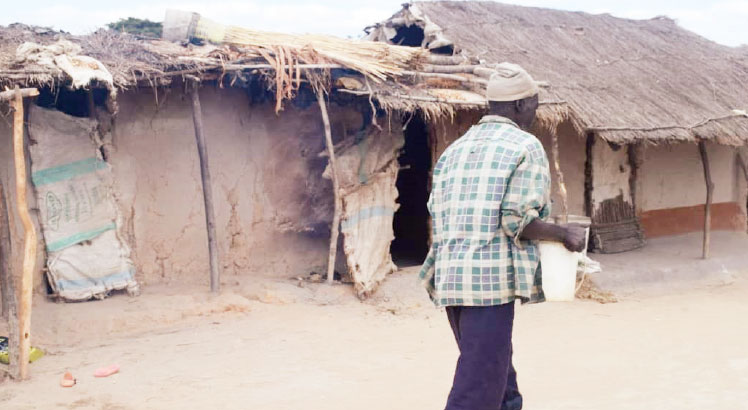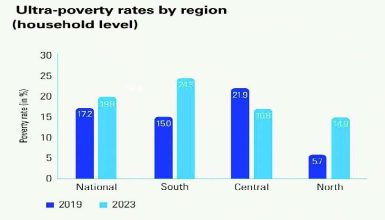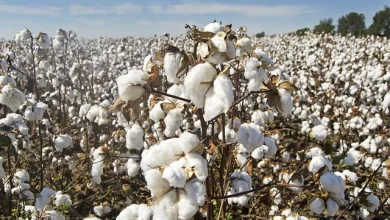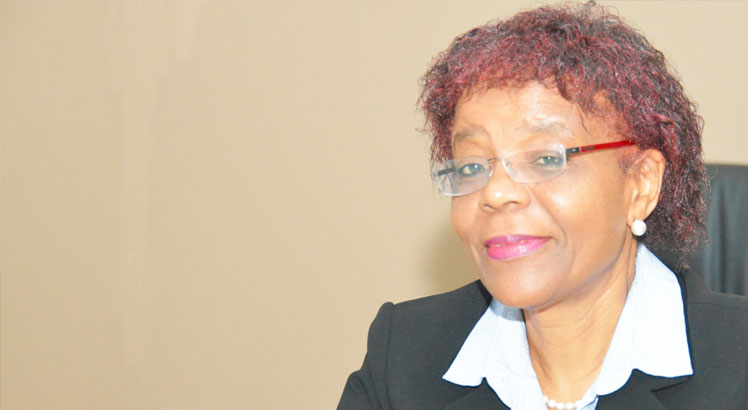Development goals under threat—WFP
World Food Programme (WFP) says recurring impacts of climate-related shocks and limited fiscal space pose challenges to the achievement of the country’s development goals.
In its 2024/28 Country Development Plan, WFP observes that government’s fiscal challenges are severe and sustained increases in financing will be required for the achievement of the Sustainable Development Goals (SDGs).
Reads the strategic plan in part: “There is limited fiscal space for meeting development needs and increases in recurrent spending are reducing the investment available to support economic growth.
“Only 23 percent of the national budget for 2023/2024 is allocated to development and 70 percent of that amount comes from international sources. Public debt has increased to unsustainable levels.”
WFP says the traditional donor base will likely remain, but is affected by global economic challenges, and increasing the links to non-traditional partners, such as the private sector, will be critical in enhancing development financing.

Through Malawi 2063 (MW2063), the country aspires to become an inclusively wealthy and self-reliant nation by 2063.
Work towards that aspiration is currently guided by a 10-year implementation plan for 2021/30, the goals of which are to raise Malawi to lower-middle-income status and meet most of the SDGs by 2030.
However, the 2023 National Planning Commission (NPC) Annual Report notes that the implementation of the first 10-year targets in the execution of MW2063 has been slow despite making some strides.
The commission said while implementation of about 80 percent of the interventions that were to start between 2021 and 2022 started, 60 percent of them were either off-track or are registering very slow progress.
This was the case in all the three MW2063 pillars of agricultural productivity and commercialisation, industrialisation and urbanisation, including the critical MW2063 enabler of ‘private sector dynamism’.
As for the other Sustainable Development Goals (SDGs), the commission said Malawi is making moderate or very slow progress on gender equality, affordable and clean energy, decent work and economic growth, industry innovation and infrastructure; climate action and partnerships critical to the realisation of the inclusive wealth creation agenda and the achievement of two of the most important SDGs of no poverty and reducing inequality.
In an accompanying statement to the report, NPC director general Thomas Chataghalala Munthali said the main drive currently is to ensure that progress is being made in the implementation of MIP-1.
“The NPC has enhanced the task of ensuring coordination and alignment of all development plans being undertaken by both State and non-State actors to the MIP-1 and the Malawi 2063,” he said.
Meanwhile, WFP has also singled out the conflict in Ukraine, the lingering impacts of the Covid, political challenges, disease outbreaks and gaps in the capacity to implement food security as some of the issues challenging the successful implementation of the country’s goals.
According to WFP, at least 5.4 million Malawians suffer from chronic food and nutrition insecurity, with the number of acutely food-insecure people averaging 2.3 million in the past four lean seasons.
This is happening at a time the price of the minimum food basket has increased by 55 percent between 2022 and 2023 with the national average price of maize tripled between 2021 and 2023, in part due to reduced output in 2022.
To this end, the programme has committed $311.95 million (about K530 billion) towards the strategic plan implementation, whose activities will contribute to achieving Malawi’s vision through pillar 1 on agriculture productivity and commercialization, and the enablers related to human capital development, economic infrastructure and environmental sustainability.





